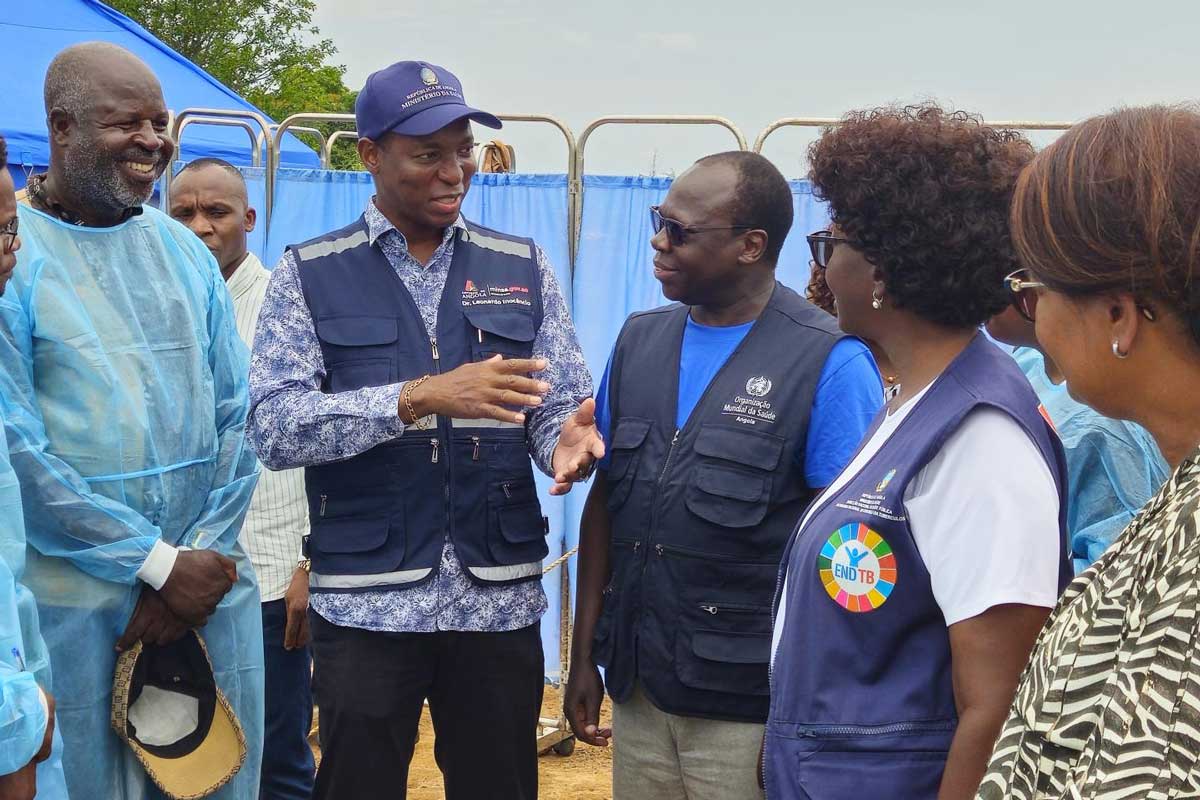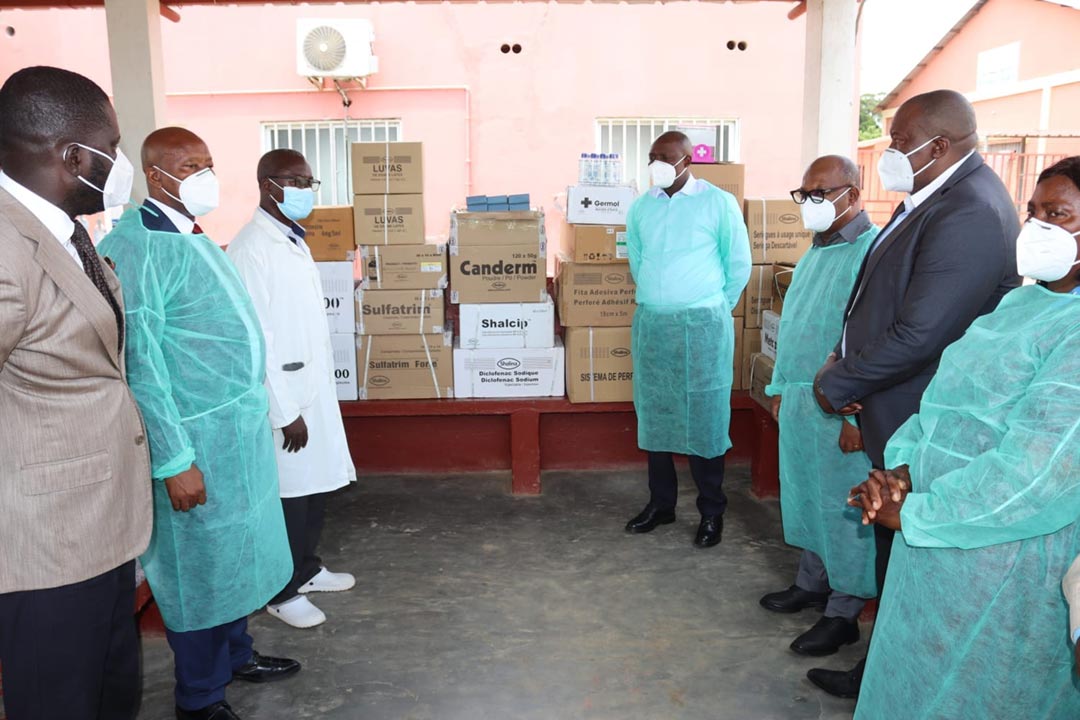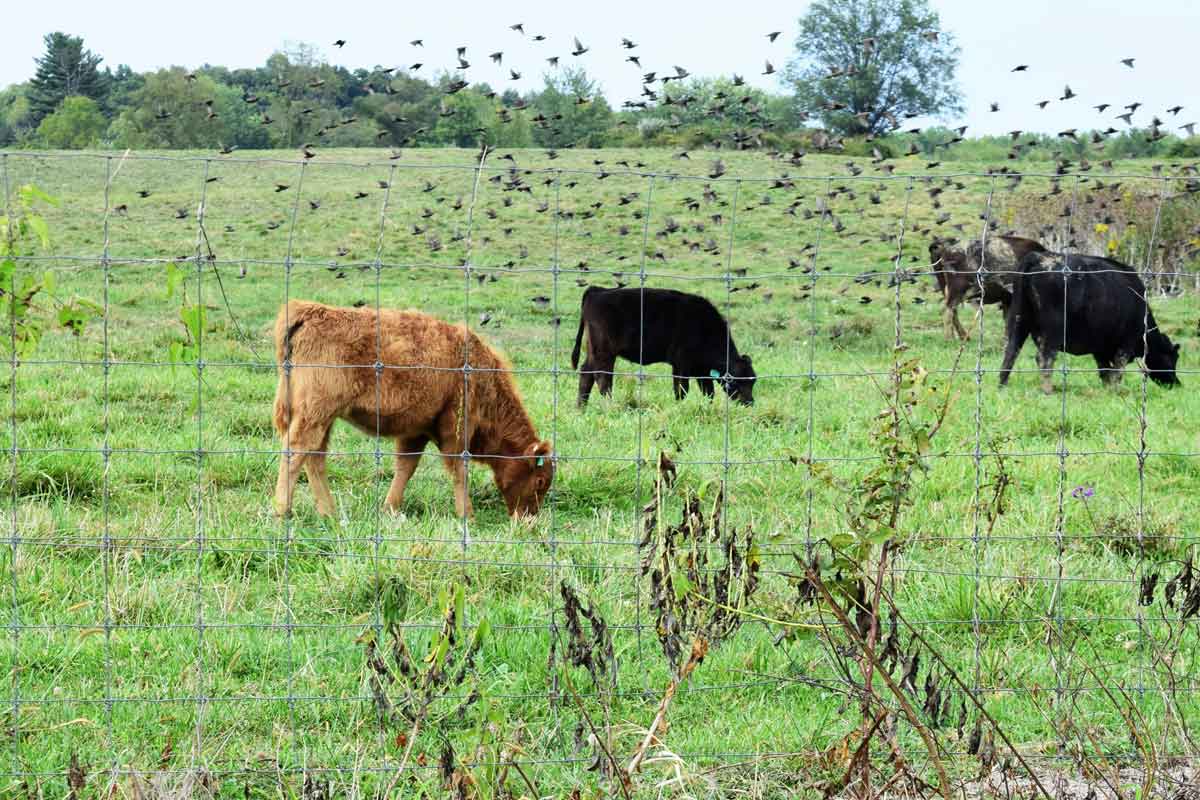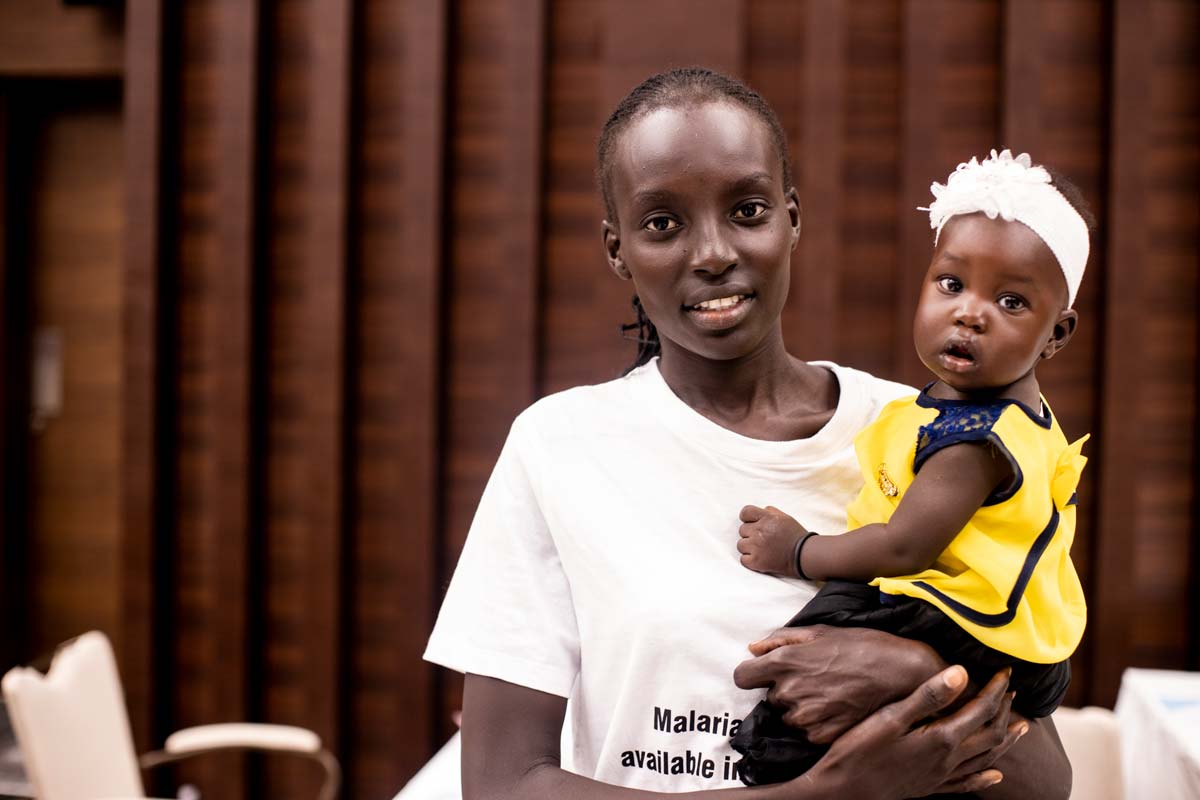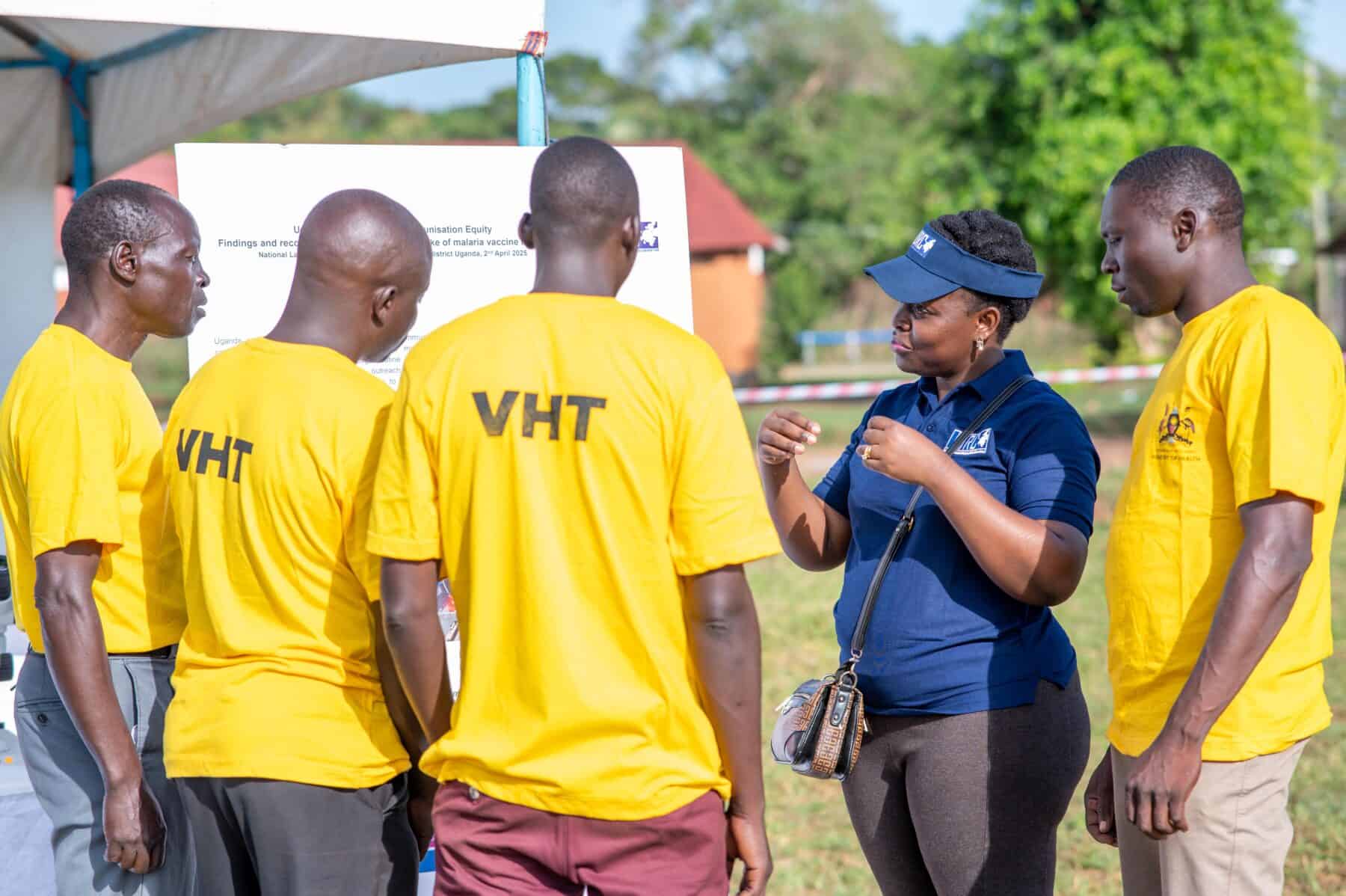Angolans spread the word: cervical cancer is vaccine-preventable
Cervical cancers account for 19% of all new cancer diagnoses in Angola. But a growing movement is trying to spread awareness of the fact that a single dose of human papillomavirus vaccine – soon to be publicly available across the country – can block that risk.
- 24 April 2025
- 7 min read
- by Gaspar Micolo

“Angola faces high cancer rates, with around 80% of cases diagnosed at stages three or four, when the chances of saving lives become significantly reduced,” warns oncologist Fernando Miguel, the director of the Angolan Institute for Cancer Control (IACC).
One of many patients caught too late, Maria Teixeira’s mother was only 50 when her intermediate-to-advanced stage cervical cancer was discovered. She had been referred to the IACC after a biopsy confirmed the alarming diagnosis. “It was a difficult period, especially in terms of accepting and adhering to treatment,” recalls Teixeira, still visibly emotional.
According to 2024 figures provided by the IACC, cervical cancer – which is preventable with the human papillomavirus (HPV) vaccine – is the second-most common cancer in the country, accounting for 19% of all new diagnoses – up from 17% in 2022. Health authorities estimate that the actual incidence is even higher; diagnostic capacity in Angola is limited.
But a growing movement is trying to shift that trend. Talks and marches calling attention to the preventability of cervical cancer are happening more and more frequently in Luanda, the capital – especially in March, which is celebrated as Women’s Month around the country.
Maria Teixeira, an economist and cervical cancer prevention activist living in Luanda, says the single most significant action she has taken is to get her 11-year-old daughter the HPV vaccine.
One March morning , VaccinesWork dropped in on a lecture being given at the Municipal Library of Luanda, where 70 employees of the Provincial Government of Luanda listened to oncologists Paul da Costa and Dionísia Kapenda explain the pathways to cervical cancer elimination. “Prevention is essential to combat cervical cancer,” said Kapenda. “Regular screening, through Pap smears and/or HPV tests, combined with vaccination, plays a crucial role in reducing cases and protecting women’s health.”
Maria Teixeira, who works in Luanda as an economist, was there too. She attends marches and talks regularly to campaign against the disease that took her mother’s life. But the single most significant action she’s taken, she says, has been to take her 11-year-old daughter for a dose of the cancer-blocking human papillomavirus (HPV) vaccine at a private clinic.
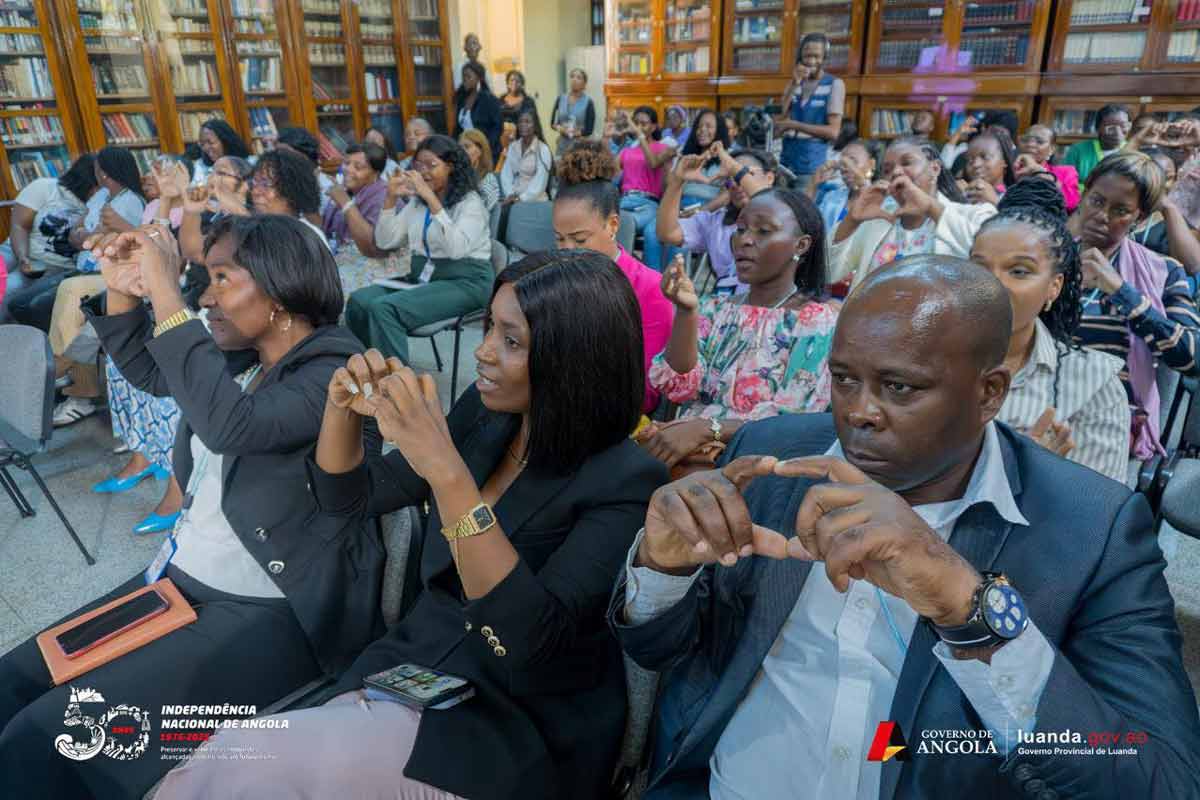
A national, public prevention strategy
Soon, that’s a step many more parents in Angola will be able to take, free of charge.
In September 2024, Angola received a shipment of 2.2 million HPV vaccine doses earmarked for an initial cohort of girls between the ages of 9 and 12.
In statements to the press, Minister of Health Silvia Lutucuta, said: “Vaccination to prevent cervical cancer represents a commitment by the Angolan government to protect the health and future of our girls, ensuring generations free from this preventable disease, in line with the Global Strategy to Eliminate this disease by 2050, thus contributing to a healthier and more economically sustainable population.”
The HPV vaccine, which has been rolled out in over 140 countries worldwide, has proven to be highly effective in preventing infections with the cancer-causing virus. For that reason, the government plans to make the vaccine – which is conveniently administered as a single-dose series – easily available to the public, removing as a barrier the high cost charged for it in the private sector. “For the first time, the public sector will introduce the vaccine against cervical cancer,” stated the Minister. “This vaccine is safe, effective and saves lives.”
Gavi's helping
Because Angola is classed as a middle-income country, Gavi’s support for the HPV vaccine roll-out is structured a little differently than in other places. About 250,000 of the vaccines to be administered come from Gavi. Other partners, including, notably, the European Investment Bank, have provided additional doses.
Gavi is also providing technical assistance – helping generate informed demand for the HPV vaccine, strengthening outreach efforts to target out-of-school girls, funding trainings and e-learning platforms, and helping to strengthen vital vaccine information management systems.
A pilot project to introduce the HPV vaccine into Angola’s Expanded Programme on Immunization (PAV) is underway in selected schools in Angola’s 21 provinces. The full-scale launch of the HPV vaccine into the immunisation schedule is currently slated for May – and the strategy has already been outlined.
In the first stage, Angola aims to vaccinate 95% of age-eligible girls within the school system with one dose of the vaccine. The second stage involves vaccination outside the normal school system, with the aim of immunising 80% of girls aged 9 to 12 over a period of 5 to 10 days.
In September 2024, Angola received a shipment of 2.2 million HPV vaccine doses earmarked for an initial cohort of girls between the ages of 9 and 12.
With experience gained during the vaccination campaign against COVID-19, Angola is moving forward with a structured plan for the introduction of the HPV vaccine. A preparatory phase consisting of pre-registration and digital registration of schools, girls and vaccination teams will predate the campaign’s kick-off. 75 High-Performance Vaccination Posts (PVAR) – temporary vaccination kiosks staffed by multidisciplinary teams – will spring up across the country.
The campaign is being carried out by a broad alliance interested in the health of future generations – technicians from the ministerial departments of the Multisectoral Commission who are responsible for coordinating the roll-out anticipate the support of strategic partners, associations of parents, guardians and civil society organisations.
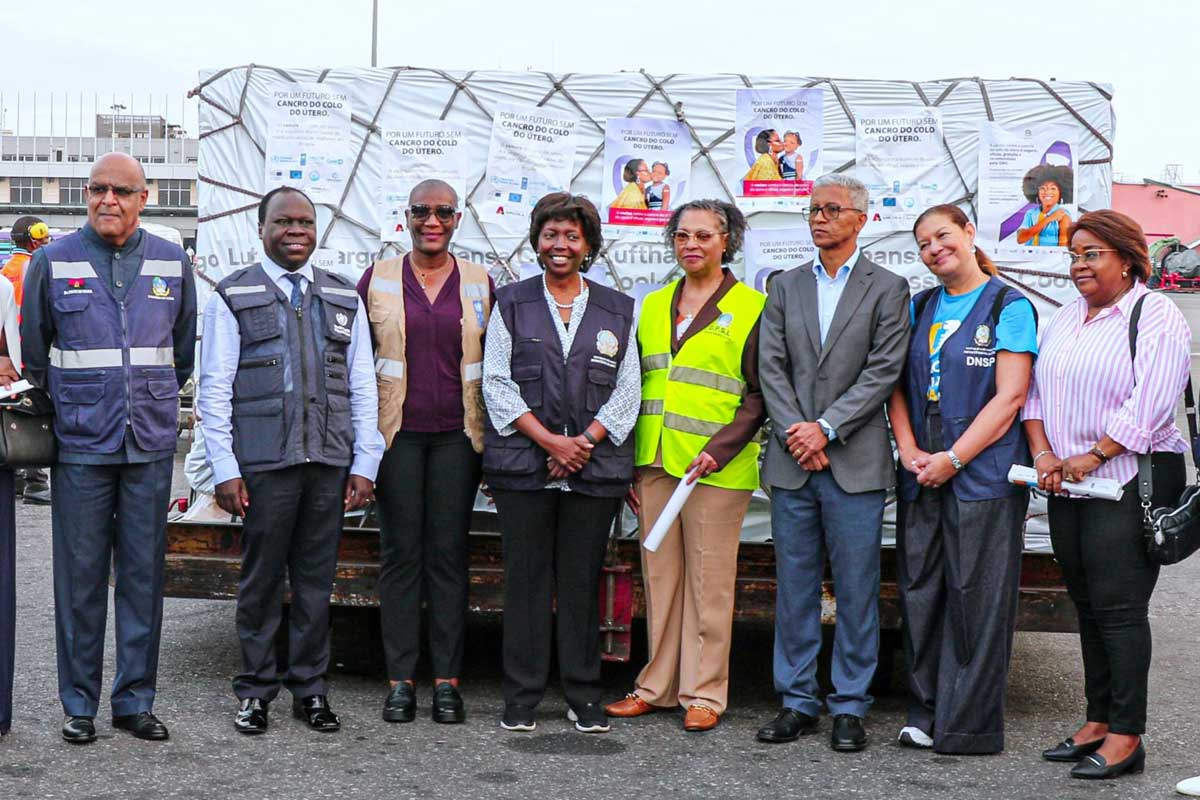
Renewed hope
Gynaecologist and obstetrician Dr Valdimiro Moisés, who has diagnosed many cases of cervical cancer, sees renewed hope in vaccination against the disease. Working at Clínica Multiperfil, a leading public health unit in Angola, the specialist highlights the advances provided by immunisation in the fight against this type of cancer.
“HPV vaccines, available in two variants – bivalent and quadrivalent – represent a significant advance in the prevention of diseases related to the virus. Both protect against infection by the human papillomavirus (HPV), considered the main precursor of cervical cancer, one of the main causes of female mortality in Angola and worldwide,” says Dr Moisés.
His professional career has been marked by challenging moments – and among the worst have been those involving communicating diagnoses of advanced cases of the disease. Among so many remarkable episodes, one of them remains vivid in his memory: the diagnosis of a colleague’s mother.
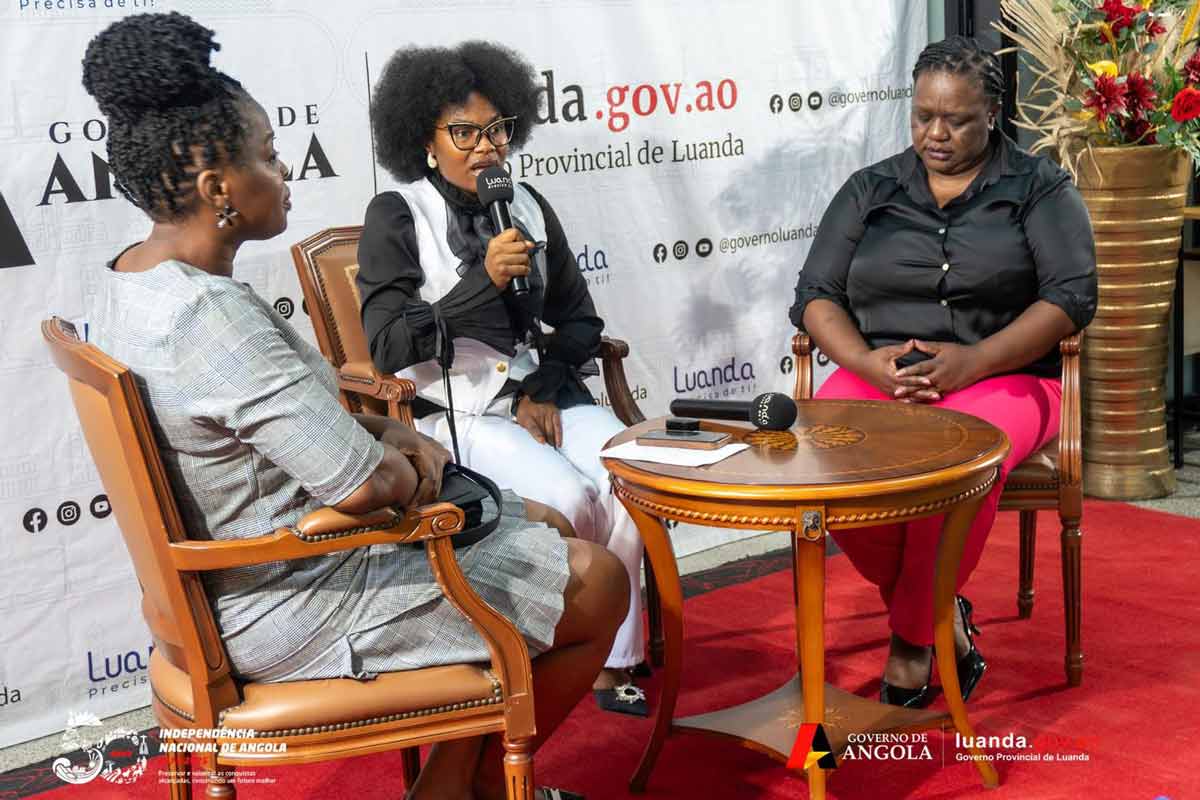
After being referred to the Angolan Cancer Control Institute, the patient ended up losing her life a few months later. “The clinical diagnosis was made by me. It was a difficult time for the patient,” recalls Dr Moisés.
He points out that, in addition to the vaccine, screening is crucial for secondary prevention, allowing the identification of pre-cancerous lesions through exams such as the Pap smear, visual inspection with acetic acid and HPV DNA testing. However, restricted access to these services in several regions makes early detection difficult, leading to late diagnoses and high mortality rates. To address this challenge, Angola has invested in expanding screening programmes and training health professionals, including nurses and community agents, to ensure effective diagnoses and treatments.
While public authorities are mobilising to implement HPV vaccination in schools, some private hospitals already offer immunisation. But on the open market, the vaccine is expensive, placing it out of reach for much of the population.
Have you read?
Meanwhile, certain institutions such as the Luanda Medical Center have been running free vaccination campaigns – shouldering the cost privately – to both raise awareness and signal their own social ethics. Tatiana Cruz, 54, is one of the many mothers who have taken advantage of the free vaccination campaigns offered by some private health facilities. She took her daughter to receive the HPV jab and could not hide her joy when she heard about the future availability of the vaccine in schools. “I was very happy when I saw the news. It is an important opportunity to protect our girls,” she highlights, reaffirming that this is a “vaccine whose need has long been felt in the public sector”.
Cervical cancer continues to be one of the leading causes of death among women in Africa, due to the lack of access to vaccination, screening and early treatment. In 2020, the World Health Organization (WHO) launched a global commitment to eliminate the disease as a public health problem, with targets for 2030, including increasing HPV vaccination and ensuring universal access to screening and treatment. Angola has made progress in this direction, but still faces significant challenges.
In an opinion piece published in the Jornal de Angola at the beginning of March during Women’s Month, Natércia de Almeida, head of Sexual, Reproductive, Maternal, Neonatal, Child, Adolescent Health and Nutrition at WHO in Angola, described Angola’s ambitions to eradicate the disease by 2030, but drew attention to the challenges. She noted that, “Although the progress is encouraging, efforts need to be stepped up to ensure that the elimination of this disease becomes a reality. The success of this strategy depends on the commitment of health authorities, the training of professionals and the involvement of society.”
